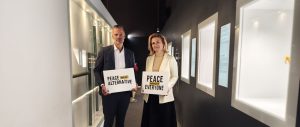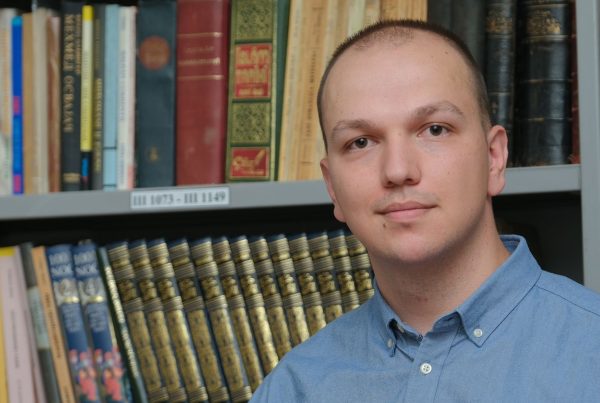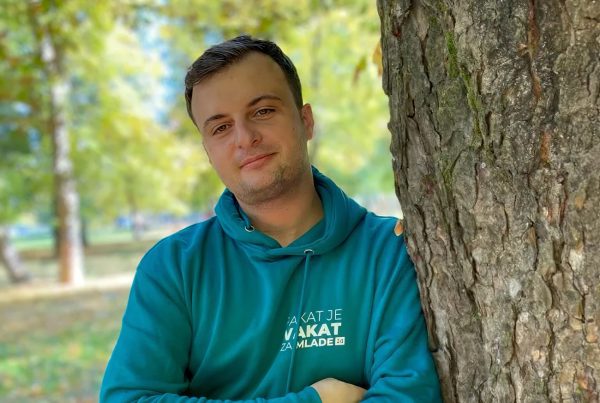During his recent visit to the War Childhood Museum, Åge Sandal Møller, Ambassador of the Kingdom of Denmark to Bosnia and Herzegovina, explored the permanent exhibition and shared his reflections on the experience, the surprises it brought, and the importance of initiatives like the WCM both locally and globally.
What are your impressions after visiting the exhibition?
The visit has left me with a profound and deep impression. I leave here really touched, moved. It’s not an easy exhibition to go through. I think I also leave with a little bit of hope. Hope in the sense that people who were kids during the war here but also during other conflicts and other wars can actually manage to try and move on by sharing stories, by sharing the objects — some very, very personal objects.
I cannot even imagine how difficult it must have been for some of them, both sharing stories but also sharing physical objects that they have kept for a lifetime.
Was there anything that particularly surprised you during the visit?
What surprised me the most is actually that handing over physical objects is part of a process. It’s not just like you come, knock on the door, and say, “Hey, I want to donate this to the Museum and the collection.”
It’s part of a healing process — a process of maybe internal transformation, trying to move on, but at the same time keeping a memory alive. That actually surprised me and really made me think of how powerful an instrument, and how powerful a museum, this is.
In your view, what is the importance of initiatives like the War Childhood Museum, both globally and locally?
I think it’s about giving children a voice. And what I’ve also seen here, with the current wars and conflicts going on in Gaza and in Ukraine, is that we are actually seeing stories and hearing stories and seeing objects in real time as a conflict and a war are happening.
It goes directly into my heart and my mind — understanding how important it is to give children a voice, and not just a voice 30 years after a war has happened. That is also immensely important, but conflicts happen every day, and currently we see some very large-scale conflicts and wars in Ukraine and Gaza.
This interview was edited and condensed for clarity.






